I see widows working vigorously to provide food to their offspring who, without a father are subjected to poverty. I hear the cries of children who are malnourished and parentless since the death of their mother and the fleet of their father to a new marriage. I touch the wounds of the women and children who suffer. I smell the familiar stench of sexism and I feel the inequality in my bones. I feel the fear of woman and the dominance of man. With every objectifying glance and comment inside I shrivel. I feel powerless.
Truth will not shine light when it is continually denied its worth and factuality. In a land which shares a commonality with a sad majority of countries and social paradigms around the globe, one whereby the reality of inequality between genders is dismissed and accepted as a mere fact of life as opposed to something which requires action and change; suffering will continue to flourish, inequality and injustice will undoubtably prevail. Despite her vast differences and unique qualities Kenya like many countries is a world socially constructed for and by men, a land where being born male automatically gives one a higher life chance, a place in which the objectification, vilification and social inequality of women is the way of life.
In every woman, in every country, in every level of every social structure there exists a penalty, a price for being born female which must and will be paid for over the duration of a female's lifetime. The price women pay for their existence and the degree one is subjected to suffer varies greatly from different socioeconomic situations, cultural factors and belief systems around the world. Indeed the brutality of paying the gender tax is often at its peak in third world countries where human rights are violated regularly or completely disregarded as basic rights. As long as we continue to ignore these rights, as we silently surpass the obligation we as humans have to stand against the repression of fellow sentient beings I fear we cannot separate ourselves from the perpetrators of repression, that is to say he who stands by silently undisturbed and unaffected by the injustice faced by another is merely another promoter of inequality. Indeed the most poisonous factor to a democratic and liberal society is the silence of the people.
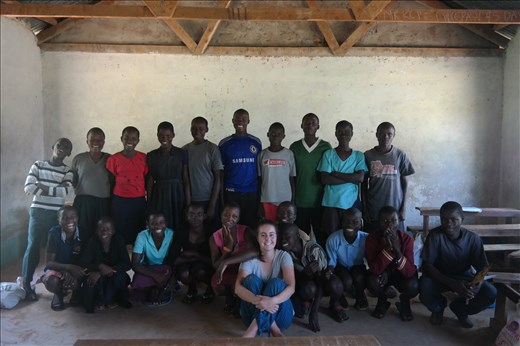
Throughout history human beings have established enormous success in various discoveries and developments, whilst simultaneously we are held accountable for atrocious acts of cruelty and discrimination. It would be ignorant to deny the necessity of change where large populations of people face severe suffering, likewise ignorance can be seen when we deny ourselves the responsibility each person owes to humanity to stand against such suffering. We have created deeply rooted social problems which directly and indirectly affect each of us. Therefore we need to consider ourselves accountable for the problems we as humans have created. When we can recognise the responsibility we have towards problems which exist in our micro communities and macro worlds, regardless of whether we have personally caused or exacerbated such problems, instead simply accepting such truth because the human race, as a whole, as one, have created these problems and as individuals who make up the human race we have a duty not only to ensure our actions do not worsen these problems but also to contribute to the resolution of such dilemmas.
In Kenya the price a child pays for their gender is high. This can be seen from the day a woman gives birth to a boy. A celebratory ceremony lasts for days with visitors and family members travelling far and wide to shower the baby and mother in gifts. Throughout the mother's life when speaking about her child she will reference her luck in giving birth to a boy- the more boys the better. However when a girl is born celebrations are minimal, boasting about giving birth to a girl is a rarity. In this fatalistic society a baby girl equates to work, insecurity and the necessity of finding a suitable husband who can offer a good dowry and provide for the woman and the offspring she will inevitably hold responsibility for. Money is a limited resource in most families in Kenya particularly those in rural areas. An example of the degree of poverty in Kenya is seen in the lack of basic needs the children have, each day I would speak to the kids about how much food they had eaten and the response rarely varied from 'one slice of bread and a cup of tea'. it is clear that the level of poverty in rural areas of Kenya is beyond what many people from the West could imagine. When a family lacks the funds to send all it's children to school (which is more often than not) the priority becomes providing the males of the family with education, for the women are believed less likely to need an education as their future is dependent on their husband and fulfilling their domestic duties.
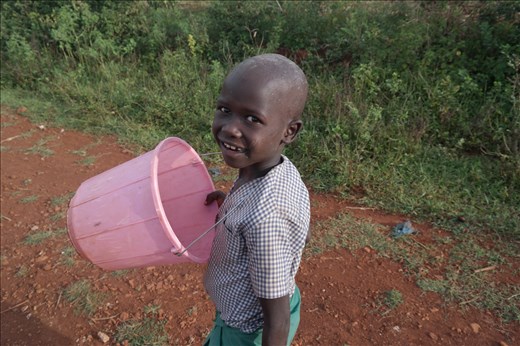
Likewise women are considered inferior to their male siblings as they are less likely to leave a legacy and name for the family, therefore many Kenyan mothers hope to give birth to a boy. Similarly a young girl who attends school during her adolescents faces enormous embarrassment and shame when she reaches her menstruation and lacks the monetary supply to buy sanitary towels. Young girls are often humiliated by their class mates to the point where they decide to withdraw from school for one week per month. It goes without saying that missing 25% of lessons in a year puts the young girls at a serious disadvantage in their studies and leads to less females achieving government scholarships for high school, consequently many girls don't go on to secondary school following primary education. Indeed this is one of the most limiting factors in terms of female equality in Kenya. When females are less likely to gain education the likeliness of social mobility and the chance of gaining a higher socioeconomic status is very small. If this continues, the cycle of institutionalised poverty and discrimination will permeate and the future of women in Kenya will remain dim.
Unfortunately the sexualisation and objective attitude towards women in Kenya has created a huge demand for prostitution and sex trafficking. Many of the women and children who fall victim to this vicious cycle of poverty end up being forced into a demoralising way of life as their alternative life-options are extremely limited. In fact according to a recent UNICEF report more than 20,000 girls are trafficked each year. Even more horrific is a report conducted by Crime Scene Investigation Nairobi which found that in the time frame of December 30th 2007 to June 30th 2008 disturbingly 40,500 women were raped out of a total Kenyan population of 33,947,100. This is a shocking statistic considering that 1 in 20 Kenyan women report rape cases and merely 1 in 6 seek medical advice. Given this information one can conclude that the real rate of rape could be well over 4 times as high. When women have a higher chance of getting raped than they have of learning to read, it is abundantly clear that something in this society is seriously wrong. 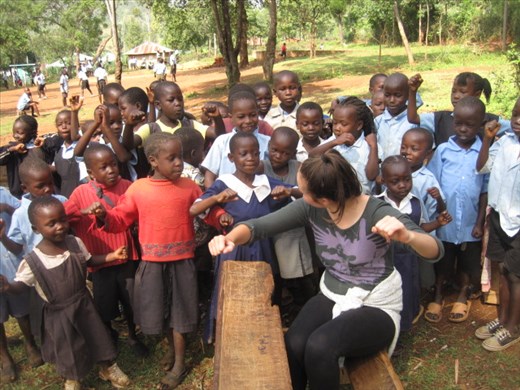
And so it must be in a world that values one gender more than another that limited life chances and unavoidable suffering of the other, lesser gender will persist. The objectification of women in Kenya Is sickening, as a western woman I found it fearfully confronting, intimidating and shameful that a female cannot walk down a road or along the beach without haunting stares, catcalling and harassment despite asking to be left alone. A day without feeling uncomfortable or objectified whilst walking down the road, a day without a comment about my body or my appearance was a rare and spectacular day.
Of course my reaction to such social norms are naive given the power men have over women in Kenya, a land where rape and domestic violence is outrageously high- I should have expected nothing less than to have been treated as a walking talking sex object, useful only for reproductive and cooking purposes, yet shock and disgrace were difficult feelings to avoid. Indeed it is difficult to observe a land with vastly different social behaviours and ethics in an unbiased way, when we ourselves have internalised a particular set of western values and morals throughout our socialisation. However the one measure of principles and basic rights established after some of the most brutal suffering in history following World War Two by the United Nations and universally agreed to is the Declaration of Human Rights. Using these 30 documents I feel one is able to more accurately evaluate the deprivation of rights and the degree of inequality populations suffer from, with less influence from personal values and subjective opinions. It is clear that my personal values are far from the values and norms in Kenya and many other countries in regards to the treatment and attitudes displayed towards women, however it is through the measure of human rights where we can begin to establish our own values and morals towards such behaviour and understand the degree of inequality ruling women. It is this basic necessity of the right to equality, the right to be free from violence and harassment, free from gender based discrimination which I aim to promote and encourage others to stand for, because if we don't stand for something, we stand for anything.
Whilst volunteering at Happy Home orphanage I had the opportunity to visit and work with many women's groups within the community. Each afternoon we would venture out to a different area in the village attending meetings of various women's group. These groups consisting of 30-40 compassionate local women and occasionally a few men, come together to raise funds for their children and the orphans whom they look after. Indeed funds are very limited and progress is a tedious process, however the level of support the members of the groups offer one another is inspiring. The most important thing I learned about the women in Kenya is that they are strong, they are strong because if they want to survive in this man's world then strength is their only option. Hard work and enduring inevitable suffering is their only way forward.
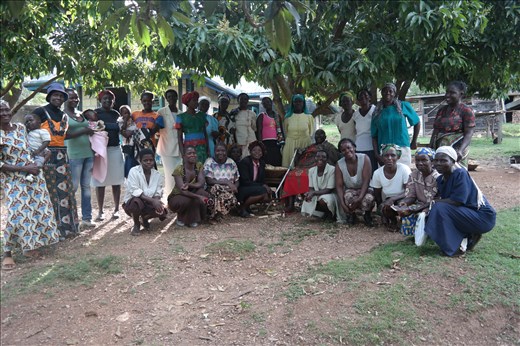
There comes a time where we must ask ourselves, when is enough enough? At what point do we stand up and speak out? When will we admit responsibility for our society? And will we ever openly and willingly accept the truth of the pain and suffering we have caused? Will we ever believe the statistics and numbers social scientists and academics have collected throughout their research? When will we conquer the fear and ease of sitting back and doing/saying nothing whilst over half of the population suffers? When will we be brave enough to take away the superiority and power which has never rightfully belonged to mankind yet has always been possessed and demonstrated by men? When will we summon the courage to demand a world where the full humanity and integrity of a woman is respected as much as that of a man's?
I'm actively waiting for the day I can be fearless of the gender of the child I will one day give birth to, knowing that both a boy and a girl will grow up in a world where each is equally respected and valued. In denying women of their basic rights, of their equal humanity as humans, we are unconsciously creating economies which do not thrive, environments where men are denied their emotions and the freedom to be able to communicate and care about issues without receiving social judgement. We are creating a world limited to and restricted by gender roles and stereotypes, and in doing so we are causing detrimental social problems including sexual abuse, hatred towards women, domestic violence, sex trafficking and rape. If we strive for the equality of women and men, we will simultaneously be creating an environment of liberation for both men and women from strict gender stereotypes, which pose serious limitations and confinements for both genders.
Once again I resort to education and activism as perhaps the most important major actions needed to be taken to change the hearts and minds of future generations, to liberate men and women from ancient typecasts and gender roles around the world. We need to emphasise the importance of education in underdeveloped regions of the world such as Kenya and to teach young boys and girls that women are just as human as men, that girls are equally as entitled to their human rights as boys are. We need to teach men in these areas that rape and domestic violence are not acts of masculinity; they are acts of cruelty and cowardice. We must teach kids the value of activism and the need to stand against sexism through the close monitoring of our thoughts, words and actions. We need to educate people around the world that the word ‘feminism’ is not dirty. That calling oneself a feminist doesn't mean you harvest a hatred towards males, nor does it mean you are seeking revenge, or that you consider women superior to men. Feminism is the belief in, and respect towards the equal attitudes and treatment towards men and women. By accepting that men and women are different we can help to create equality through accommodating and embracing differences, and finding common ground in our similarities.
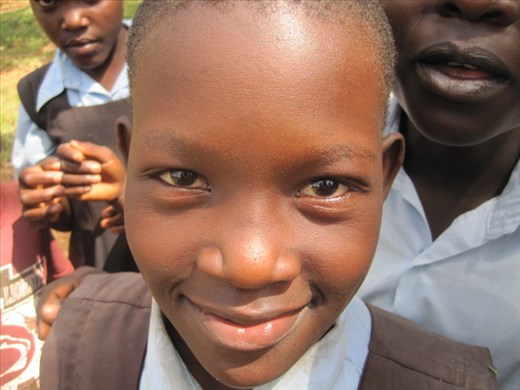
The belief that feminism is a ‘women’s issue’ which doesn't affect men is completely misplaced, it would be misleading to say that in the process of working towards female equality men wouldn't to some extent lose their birth right of power and social status. The truth is, in an ideal egalitarian society men will no longer be born superior, indeed they might have to work just as hard as a woman to get a promotion and they won't automatically hold the reins of power and status in the social hierarchy. The reality is men will no longer be handed the birth privileges they were never justly entitled to in the first place. This prospect may frighten many men and even women, as our natural instinct is to fear change. However in creating a level playing field men and women will also be liberated and freed from social expectations and gender typecasts. The weight of social problems women and men face on an existential basis will be dramatically lifted. Ultimately the future of women in Kenya, and all over the world depends on our ability to recognise and stand against the basic injustices and inequalities which have been deeply ingrained into our thoughts, words and actions. It is only by recognising these social norms and refusing to abide by such mores that we can create a world whereby women around the globe will no longer pay a price for their existence.